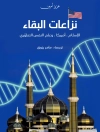Italy, seat of the Pope and Vatican City, has a long and difficult relationship with religious freedom. Often identified as a Catholic nation par excellence, Italy owes its unification to a political class that advocated the separation of Church and State. Home of the Concordat, contemporary Italy recognises a peculiar notion of legal secularism (laicità) as the supreme principle of its constitutional order. Through the glasses of law, tracing the history of the right to religious freedom from the Unification to the present day, the nine chapters of the book allow an insight on paradoxes and contradictions of a complex system made of unresolved stratifications where a strong constitutional recognition of religious freedom is accompanied by a weak legislative protection of religious pluralism and, at the same time, a vigorous religious agency in the public space. Religious freedom in Italy offers an interpretation of a model of religious freedom that is not only a paradigm for many European experiences but also a possible interpretative parameter to better understand the dynamics of religious freedom between the two shores of the Mediterranean.
Sobre el autor
Alessandro Ferrari, University of Insubria, Varese/Como, Italy.












